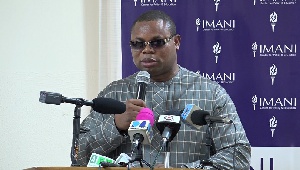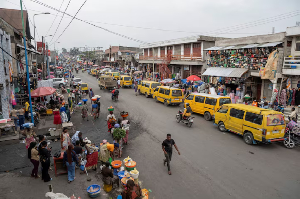Dubai's tourism sector rallied strongly, steadily picking up pace through the first three months of 2018 in light of growing currency pressures as it continued to retain and grow share across global markets.
The city welcomed 4.7 million international overnight tourists from January-March 2018, posting a stable 2 per cent increase in traffic versus the same period last year.
According to budgeted data from the Statistics Department of the Ghana Tourism Authority (GTA) the country recorded only 980,141 arrivals against receipts of 1.85 million cedis in 2017 but garnered 932,579 arrivals and receipts of 1.77 million in 2016.
In a report released by Dubai's Department of Tourism and Commerce Marketing (Dubai Tourism) and copied to the Ghana News Agency, leading source markets continued to highlight their affinity for Dubai as the top three retained their positions versus 2017.
Recording an impressive 7 per cent year-on-year increase to deliver 617,000 visitors, India helped level out the relatively stable second-placed KSA (-1%) and the steeper decline in visitation from third-placed UK (-8%).
Russia ended the quarter in fourth place, continuing its upward trajectory by topping the growth charts with a stellar 106 per cent increase over Q1 2017, delivering 259,000 tourists, benefiting from availability of visa-on-arrival facilities for Russian citizens from early last year.
Similarly, fifth-placed China also continued to leverage its visa-on-arrival status, delivering 258,000 Chinese visitors, up a strong 12 per cent.
Posting double-digit increases in most countries, Europe made particularly strong contributions in the first three months of the year, with Germany in seventh place up 13 per cent with 194,000 visitors, France up 17 per cent with 103,000 in 12th place, and 14th-placed Italy up 20 per cent with 80,000. In a record first appearance, Sweden featured among Dubai's top 20 source markets, delivering 42,000 visitors, up 9 per cent.
Rounding off the top 10 feeder markets, sixth-placed Oman ended Q1 down 4 per cent, showing signs of recovery after challenging economic conditions that dominated 2017, resulting in significant reductions in tourist arrivals to Dubai. Travellers from eighth-placed US increased by a moderate 2 per cent, while declines were witnessed by both ninth-placed Iran and 10th-placed Pakistan at 19 and 22 per cent respectively.
From a regional perspective, Western Europe retained pole position, contributing an unprecedented 23 per cent of overnight visitor volumes, ahead of the GCC and South Asia, both with 17 per cent shares.
The proximity markets across the MENA region continued to deliver sustained volumes at 11 per cent share, while North and South-East Asia drove 10 per cent of the volumes. Meanwhile, Russia, the wider CIS and Eastern Europe collectively delivered 10 per cent of total visitation and contributed an impressive 50% increase in visitation for the first quarter. Rounding off the regional mix and reflecting the sustained diversity of Dubai's visitation base, the Americas contributed a consistent 6 per cent in volumes while Africa grew traffic volumes by 15 per cent to contribute a total of 5 per cent, and Australasia the final 1 per cent of the regional mix for Q1 2018.
Helal Saeed Almarri, Director General, Dubai Tourism, commented: 'The first quarter of the year has yielded stable performance supporting strong growth for all adjacent sectors like hotels and airlines.
We expect to build on this strong base of 4.7 million visitors, to accelerate momentum through the summer and beyond - on the back of our strategic investments, partnerships, and policy enablers that are geared to collectively drive strong growth in 2018.
As we move forward, the steadfast support we receive from our government, public and private sector partners is invaluable, and together we can look forward to delivering our Tourism Vision target of welcoming 20 million annual visitors by 2020.'
At the end of March 2018, Dubai's growing hotel room inventory stood at 108,807 spread across 689 hotel and hotel apartment establishments, representing year-on-year increases of 4 and 1 per cent respectively.
Occupied room nights also rose compared to the end of Q1 2017, totalling 8.27 million versus 7.96 million, while the average occupancy rate across all hotel and hotel apartment categories stood at an impressive 87 per cent. These figures indicate that the city continues to present a hugely attractive investment opportunity for hoteliers and developers, with the sector successfully balancing demand and capacity to produce positive results.
General News of Wednesday, 6 June 2018
Source: ghananewsagency.org













